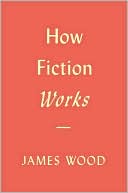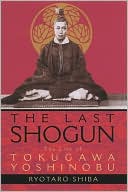Randi's Unwinnable Million Dollar Paranormal ChallengeFor many years James "The Amazing" Randi has offered a million-dollar award to anyone who could offer convincing proof of paranormal phenomena. Despite the winging claims of many of the purveyors of woo who have failed to get past the initial screening, the money does in fact exist and must be paid out to anyone who meets the---admittedly difficult---conditions of the prize. Why does Randi do this? In contrast to the charlatans who do everything for good publicity and the money it brings in, Randi's big stunt is essentially educational. It draws attention to the fact that no one has ever come close to winning it, or of even meeting the simplest conditions of entry. Anyone susceptible to the claims of the astrologers, palmists, diviners and vague psychics will think twice when considering that none of these people has been able to claim Randi's proffered prize. But there is an additional lesson in Randy's bank vault beyond the fecklessness of the vampires of gullibility.
When I first heard of Randi's prize, I often wondered at the risk he was taking. What if someone actually won? That's a lot of money to have to fork over to your enemy, and it would probably hurt a lot more than having
to fend off a vacuous libel suit from a soulless charlatan like Uri Geller. It made Randi seem quixotic, and perhaps truly reckless. Fortunately for Randi the money is very safe, for as long as the strict protocols are observed the prize is essentially unwinnable, almost by definition.
Here is why. In order to win the money you have to demonstrate a "paranormal" effect or ability in such a way---agreed to in advance by Randi and the contestant---that any other cause can be ruled out. For example, it has been easy to demonstrate divination skills when the contestant knows where the treasure is buried in advance, but in a carefully controlled environment where foreknowledge is not possible no one has been able to demonstrate the ability to find hidden resources with a twitching stick. Randi has left a few sincere strivers scratching their heads wondering where the powers they were so confident of had suddenly disappeared to when the strict protocols were enforced. Randi will not award you the money just because you claim to be psychic; you have to show him some proof. You must generate an observable effect than can only spring from your claimed paranormal ability. An effect that can only be demonstrated when no one is looking, or cannot be demonstrated when anyone is observing cannot win the prize. This is the catch that most people miss.
Most practitioners of woo like to think that scientists (or, amusingly, "big science") have arbitrarily segregated out certain fields of inquiry from the domain of grant-worthiness. This idea is virtually baseless. The principle that filters out the woo from valid avenues of scientific inquiry is the naturalistic methodology that requires such things as reproduceablility and observeability. Therein lies the catch in Randi's Prize. Any phenomenon, whether it be palmistry, the audible voices of ghosts, or impossible rocks from the sky, so long as it produces a measurable effect---a prediction about your future, information from the departed, or strange bright trails in the constellations---can be tested and studied. Scientifically. In effect, anything that leaves rigorously measurable---not to mention unfaked or misidentified---traces ceases to be paranormal. If the use of a divining rod actually worked then scientists would be studying its mechanism. There would be theories as to how the forces were transmitted and sensations detected and experiments would be performed to test those theories. Sooner or later, through a process of creativity, intuition and above all demonstration, the secret mechanisms of the divining rod would make themselves understood by mankind. If objects created some sort of hitherto unrecognized field that could be detected with an instrument as simple as a whittled stick in sensitive hands, it would be a remarkable and epoch-defining discovery. It would then be possible to construct a much more sensitive device using modern technology that performs the same task with much greater efficiency. But since no one has ever convincingly demonstrated the efficacy of this sort of divination no one has bothered to research it, except for the first step: (dis)confirming its existence. That experiment is easy enough to perform by school children, and occasionally is. I tried it myself when I was eight years old, but even in my highly suggestible state I soon found that either the phenomenon did not exist or I was insensitive to it. Besides, my grandfather's metal detector worked for everyone and was much more fun to play with. Of the other phenomenae I mentioned, palmistry, as is true for all the fortune-telling professions, is more the role of telling your client what they want to hear than what---if anything---is written in the creases of their hand. The practice of recording the "voices of ghosts" has more to do with turning microphone amplifiers up beyond their normal operating range (the effect disappears when you use equipment designed specifically to record faint sounds.) Meteorites, on the other hand, were once doubted by philosophers for contradicting their long established models of the universe. And yet meteorites clearly exist. Couldn't this be true of other seemingly poorly-studied effects now considered paranormal? Yes it could, at least in principle, and that is the provenance of my "almost" in "unwinnable, almost by definition."
It is one of the duties of scientists to explore the fringes of natural knowledge (the other duties being to tie that knowledge together in a consistent whole and to explain their findings to engineers.) In order maintain some reasonableness, it is expected and demanded that all new discoveries fit into the commonly understood framework of how the universe works. Scientists check this all the time. Experimental result that do not quite fit, or are surprising, must be carefully checked because they are probably wrong. It might be a great new discovery that overturns the standing paradigm the way classical mechanics was overturned at the end of the nineteenth century, but it is far more likely that someone has just made a mistake. So scientists (should) check and re-check, and try very hard to figure out what they might have done wrong before they publish unexpected results. If they publish prematurely they will be seen as fools, as
Pons and Fleischmann were when they failed to practice due diligence before presenting their extraordinary claims concerning cold fusion. A claim that cannot seem to fit into the established framework might lead to a powerful new discovery, but more than likely it is bunk. A healthy skepticism always serves well in this case. And yet it sometimes does misfire. When the claim was made that
Helicobacter pylori was responsible for most stomach ulcers doctors almost universally scoffed, but
Robin Warren eventually proved his case and ultimately shared a Nobel Prize for his efforts.
It is noteworthy that in neither case did Messrs. Warren or Pons ever claim they were exhibiting some paranormal phenomenon. They did their best to make all their methods as public as possible and invited others to test them. Eventually,
H. pylori was connected convincingly to gastric illness, while cold fusion remains unreproduceable. Perhaps one day some huckster will claim to have a special engine powerd by the secret cold fusion recipe (and the donations of his gullible investors) but that would then be a form of surrender. Having joined the ranks of pseudo-science, cold fusion would have become useful only for extracting money from the credulous. It would not win the Randi Prize. But couldn't Robin Warren win? His work was once dismissed as pseudo-science, but has since been extraordinarily vindicated. Doesn't that alone qualify for victory? Had he claimed that stomach ulcers were caused by a mysterious, hitherto undetected "morphic" ulcer field then he might try for Randi's Prize, but he did not (and would have been wrong if he had.) Warren claimed that a bacterium, and not spicy food, was the cause of gastric illness. His claim was initially discounted because most scientists doubted that anything could live in such an acidic environment as the human stomach, but the idea was readily testable and was shown to be correct.
Scientific endeavors involve repeatedly confirming assertions through observation. Paranormal phenomenon, on the other hand, are consistently falsified. The practitioners of the paranormal routinely sidestep or ignore this falsification. This is what paranormal means. If they could actually be tested and confirmed then they would no longer be paranormal phenomenon, they would be valid topics for scientific inquiry. Calling something paranormal, then, is a way of admitting that it cannot possibly meet Randi's criteria, and thus all such attempts to take the prize are stillborn.
__


